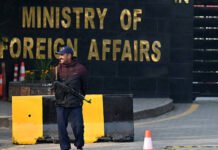Bangkok, 29 March 2022 (TDI): The United Nations Economic and Social Commission for Asia and the Pacific (ESCAP), the Asian Development Bank (ADB), and United Nations Development Programme (UNDP) jointly launched the newest edition of the Asia-Pacific SDG Partnership Report.
The report highlights the effects of the pandemic on the region and how previously made progress has come undone due to it, while also bringing to light risks to developing countries and their poor and vulnerable population.
The report aims to support regional dialogue and consider how the pandemic has affected the region’s progress in achieving the 17 sustainable development goals (SDGs) while also looking at how countries are evolving and responding to the ongoing crisis.
In dealing with the crisis, the region has also shown the deeply rooted economic and social inequalities that exist. The report is split into four chapters each covering a specific aspect.
The first chapter highlights the aforementioned economic, social, and environmental inequalities that the COVID-19 pandemic has exposed the region to while also looking at associated risks to recovery that are all-inclusive.
Chapter 2 considers key factors that have shaped the effects of the pandemic and how countries have responded to these changes, it also features an in-depth analysis by ESCAP, ADB, and the UNDP.
This joint report by @ADB_HQ, @UNESCAP, and @UNDP examines how countries in Asia & the Pacific have responded to the impacts of the pandemic and highlights key policy priorities to reignite regional progress toward achieving the #SDGs. #SDGPartnership
— ADB Publications (@adbpublications) March 29, 2022
Chapter 3 highlights key policy priorities based on in-depth inputs from sub-regional data involving nearly 1000 stakeholders and 11 detailed case studies.
These policy priorities aim to reignite progress on achieving the 17 sustainable development goals which have been hampered by the COVID-19 pandemic.
Chapter 4 highlights ways to mitigate the ongoing situation, raising the ambition of national recovery strategies to align with the 2030 agenda of leaving no one behind.
It also highlights pushing for public and private sector investment for more inclusive and sustainable development, the final chapter highlights the need for regional cooperation to overcome common challenges in the region.








